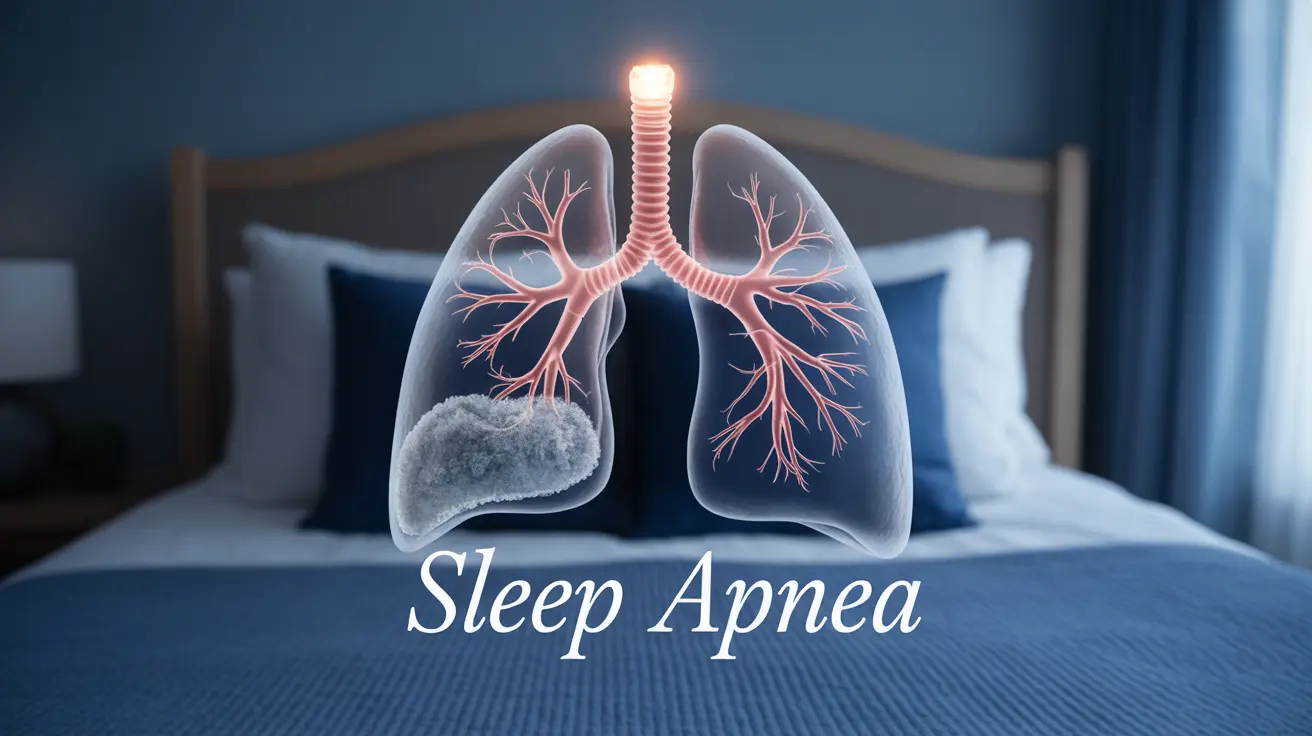Sleep apnea and atrial fibrillation are two serious medical conditions that share a complex and significant relationship. Research has shown that people with sleep apnea are at a substantially higher risk of developing atrial fibrillation, a heart rhythm disorder that can lead to serious complications if left untreated.
Understanding the connection between these conditions and recognizing their symptoms is crucial for proper diagnosis and treatment. This article explores how these conditions interact, their shared risk factors, and effective management strategies.
Understanding the Connection Between Sleep Apnea and AFib
Sleep apnea creates physiological stress on the heart through repeated episodes of oxygen deprivation during sleep. These episodes trigger a cascade of events in the body, including:
- Increased blood pressure
- Elevated stress hormone levels
- Changes in heart tissue structure
- Inflammation throughout the body
- Disrupted electrical signaling in the heart
These changes can create the perfect conditions for atrial fibrillation to develop or worsen over time. The repeated stress on the heart's electrical system can lead to irregular heart rhythms, particularly during sleep.
Recognizing the Combined Symptoms
When sleep apnea and atrial fibrillation occur together, patients may experience a range of overlapping symptoms that can significantly impact their quality of life:
- Excessive daytime sleepiness
- Irregular heartbeat sensations
- Shortness of breath
- Morning headaches
- Difficulty concentrating
- Fatigue and weakness
- Night-time chest discomfort
The Role of CPAP Therapy
Continuous Positive Airway Pressure (CPAP) therapy serves as a primary treatment for sleep apnea and can significantly impact atrial fibrillation management. Regular CPAP use helps maintain steady oxygen levels during sleep, reducing the strain on the heart and potentially decreasing AFib episodes.
Essential Lifestyle Modifications
Managing both conditions often requires comprehensive lifestyle changes:
- Maintaining a healthy weight
- Regular exercise within safe limits
- Avoiding alcohol and caffeine, especially before bedtime
- Establishing consistent sleep schedules
- Managing stress through relaxation techniques
- Following a heart-healthy diet
- Quitting smoking
The Importance of Early Detection
Early identification of both conditions is crucial for effective treatment. Healthcare providers increasingly recognize the need to screen for sleep apnea in patients with atrial fibrillation and vice versa, as treating one condition often helps manage the other.
Frequently Asked Questions
How does sleep apnea increase the risk of developing atrial fibrillation?
Sleep apnea increases atrial fibrillation risk through repeated oxygen deprivation, which stresses the heart and triggers inflammation, elevated blood pressure, and changes in heart tissue. These factors can disrupt the heart's normal electrical signaling patterns, potentially leading to AFib.
What are the common symptoms of atrial fibrillation linked to sleep apnea?
Common symptoms include irregular heartbeat, excessive daytime sleepiness, fatigue, shortness of breath, chest discomfort during the night, and morning headaches. These symptoms often worsen during sleep or upon waking.
Can treating sleep apnea with CPAP reduce the chance of atrial fibrillation recurring?
Yes, consistent CPAP therapy can significantly reduce AFib recurrence by maintaining steady oxygen levels during sleep, reducing inflammation, and decreasing the physical stress on the heart that can trigger irregular rhythms.
What lifestyle changes can help manage both sleep apnea and atrial fibrillation?
Key lifestyle changes include maintaining a healthy weight, regular exercise, avoiding alcohol and caffeine before bedtime, establishing good sleep habits, stress management, and following a heart-healthy diet.
Why is it important to screen for sleep apnea in patients diagnosed with atrial fibrillation?
Screening for sleep apnea in AFib patients is crucial because treating underlying sleep apnea can significantly improve AFib management, reduce symptoms, and potentially decrease the frequency of AFib episodes. Early detection allows for more effective treatment of both conditions.




